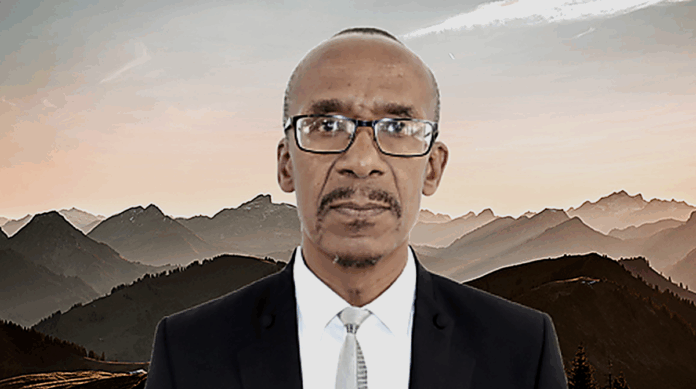…laments culture of leadership that fails to account
Mohloai Mpesi
THE leader of the Mpulule Political Summit (MPS) and a proportional-representation Member of Parliament, Remaketse Sehlabaka, has warned that the country faces a serious moral decline driven by leadership drawn from a “rotting and decaying” public.
Mr Sehlabaka made the remarks during an intensive parliamentary debate on the establishment of a Committee on Government Assurances on Friday.
The motion was filed in 2023 by Professor Nqosa Mahao, leader of the Basotho Action Party (BAP), and seconded by Machesetsa Mofomobe, the outspoken leader of the Basotho National Party (BNP).
The debate, adjourned on 2 May 2025, seeks to establish a Sessional Select Committee under Standing Order No. 97 to scrutinise promises made by ministers on the floor of the House and gauge their implementation.
The proposed committee would “scrutinise the assurances, promises, undertakings and the matters given by Ministers from time to time on the floor of the House and report on the extent to which such assurances, promises and undertakings, among others, have been implemented”.
It would also “exercise such other functions that may be assigned by the House to the Committee from time to time”.
Although Mr Sehlabaka supported the motion, he expressed deep concern about the calibre of leaders being selected from society.
“It is important to have this committee because we need the work of ministers to be made in such a way that the utterances they make should turn into action. They should not be mere statements, because we have a problem across regimes where these statements are not executed,” Mr Sehlabaka said.
“I realised that this country does not have a problem with laws; it has a problem of a rotting and decaying society. We have a public that has lost basic humane principles, and when we choose leaders, we choose them from this kind of public.
“Whether you appoint someone to be a teacher, pastor, Member of Parliament, Prime Minister, or Minister, it becomes a big problem . . . We make these laws so that those with the will to serve can find a framework in place. Right now, I see a big problem: we make laws, but they are violated because our leaders are chosen from a rotten public.”
Mr Sehlabaka also said the National Assembly portfolio committees perform oversight duties, but encounter resistance when the executive lacks the will to serve.
“The committees we have in Parliament are doing their oversight jobs. But when they do oversight over people who do not want to do their jobs, it becomes a major problem. You get tired doing oversight on someone who refuses to work and refuses to account.
“We face a leadership crisis. We need this committee to strengthen oversight but, I must repeat, we are holding accountable people who do not want to be accountable.”
Retired leader of the Popular Front for Democracy (PFD), Advocate Rakuaone Lekhetho, urged that the proposal be treated seriously, saying several Commonwealth countries already have similar committees.
He emphasised that the committee is not meant to persecute ministers but to help them fulfil promises.
“It is not a committee that will persecute ministers but one that will hold them to the promises they made. Government issues should be treated with the seriousness they deserve. Countries practicing this include Zambia, Ghana, Uganda, India and Seychelles. These are good parliamentary practices and important pillars for our country.
“We have a pledge in our standing orders to investigate the usage and practice of members of SADC, Commonwealth Parliamentary Associations and other jurisdictions such as the Inter-Parliamentary Union. I have heard that even Kenya has adopted this. These are trends we can follow,” Adv Rakuoane said.
Minister of Sports, Tourism, Arts and Culture, Motlatsi Maqelepo, also supported establishing the committee, saying it would strengthen parliamentary oversight and accountability.
“I accept and encourage this. I see its importance in strengthening Parliament’s oversight role and holding the executive accountable,” Mr Maqelepo said.
However, Mr Maqelepo cautioned that the committee should not be used to harass the executive but to follow up on promises made, instead.
“When we look back at Parliament, we should be able to say we set up systems and mechanisms to strengthen accountability and answerability. I want to believe the mover’s intention was to strengthen accountability,” he said.
He went further to raise a separate concern on accountability, this time about parliamentary attendance and in-house accountability.
“Who holds us to account when we fail in our duties? How many of us were present when we started? Who plays an oversight role over Parliament itself?
“If a Member of Parliament can spend two weeks in a month without coming to Parliament, from an accountability point of view who looks into those issues so we can instil a culture of accountability across the country?
“We should accept this motion. When the committee is established, it must stay in its lane and perform its oversight function strongly and according to its mandate, not to fight the government but to follow up on promises that have been made.”


